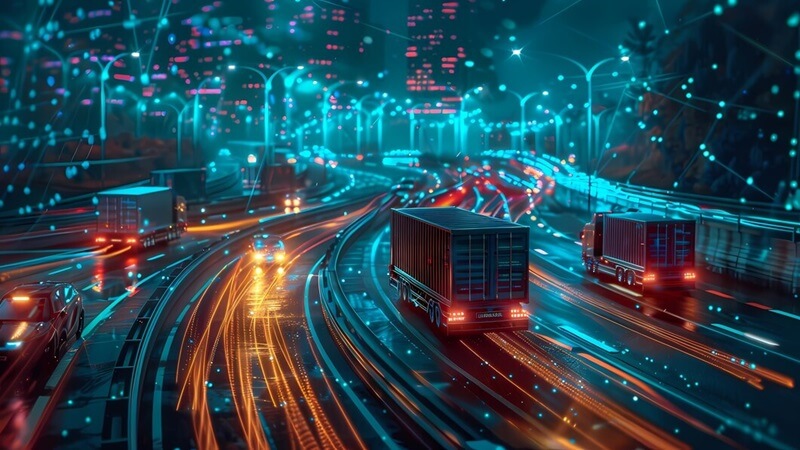Key Takeaways
- Technology breakthroughs are causing a rapid evolution in the trucking business.
- Logistics are predicted to undergo a revolution with automation and electrified trucks.
- There is an increasing push to lower carbon emissions and increase sustainability.
- Analytical data is essential for improving operational effectiveness.
- Upcoming rules will reshape future of trucking industry norms.
Introduction to Trucking Trends
The trucking industry is undergoing a significant transformation driven by technological advancements, changing regulations, and an increased focus on sustainability. As we move forward, it’s essential to understand the trends and innovations shaping the future of trucking. For instance, Dallas trucking companies embrace these changes to stay competitive in the evolving market. These trends will likely have far-reaching impacts across the industry, the future of trucking affecting everything from operational processes to overall business models, creating a more dynamic and competitive landscape.
Technological Advancements in Trucking
Technology is revolutionizing the trucking industry in ways that were unimaginable just a decade ago. Developments such as automation, electric vehicles, and advanced telematics are reshaping traditional logistics processes. These advancements improve efficiency and provide safer and more sustainable solutions. In particular, the integration of wireless technology has made it possible for trucks to communicate with each other and transportation infrastructure, paving the way for more intelligent, more efficient logistics networks. The advent of IoT (Internet of Things) devices has further enhanced trucks’ capabilities by providing real-time data on various parameters, thereby improving decision-making processes and operational efficiency.
Automation and Electric Trucks
Automation is one of the most significant innovations in trucking. Autonomous trucks are expected to reduce human error, improve road safety, and bolster efficiency. These self-driving vehicles use a combination of sensors, cameras, and artificial intelligence to navigate the roads with minimal human intervention. Automation also promises to ease the growing driver shortage by reducing the need for human drivers, thus driving down labor costs. Additionally, the future of trucking the rise of electric trucks presents a promising solution for reducing carbon emissions and dependency on fossil fuels. Significant companies invest heavily in these technologies to lead sustainable transportation. For example, companies like Tesla and Nikola are developing electric trucks that promise significant cost savings and environmental benefits over traditional diesel trucks. The operational cost savings and lower emissions make electric trucking a viable long-term solution for the industry.
Sustainability Efforts
The trucking sector has focused on environmental sustainability because of regulations and consumers’ desire for eco-friendly measures. Businesses are embracing sustainable practices and investing money into environmentally friendly technologies to reduce environmental impact. The industry is moving towards a more eco-friendly future by implementing electric trucks and efficient delivery route planning. Many companies also put their money into renewable energy sources such as wind and solar power to run their activities and reduce their dependence on non-renewable resources. These efforts reduce the negative environmental impacts of transportation and enhance the sector’s reputation among environmentally conscious consumers. Incorporating sustainable methods has a powerful effect on companies aiming to establish their brands and expand into new markets.
Data Analytics and Operational Efficiency
To increase operational efficiency in the trucking industry, data analytics is essential. Businesses can use big data to guarantee on-time delivery, optimize routes, and increase fuel efficiency. To guarantee that trucks are always in the best possible condition, advanced analytics may also help anticipate maintenance requirements and save downtime. These analytical understandings are essential to staying competitive in the market’s constant change. Furthermore, real-time data may give businesses a complete picture of their operations, empowering them to make well-informed decisions and swiftly adjust to changing conditions. Businesses may remain ahead of the curve by using data analytics’ predictive powers to help predict future trends and market demands.
Upcoming Regulations
Regulatory changes are on the horizon and will undoubtedly impact the trucking industry. New regulations concerning emissions, safety, and labor standards are being introduced to ensure a more sustainable and fair industry. Companies must stay informed and adapt to these new standards to remain compliant. For instance, stricter emission standards are being implemented to reduce the environmental impact of trucking. Similarly, new safety regulations aim to improve road safety by requiring advanced truck safety features.
Compliance with these regulations will help companies avoid fines and improve operational efficiency. Adapting to these changes will be essential for companies to avoid fines and maintain their competitive edge. Companies proactively complying with these regulations will likely gain a competitive advantage, as compliance can often lead to better operational practices and enhanced safety standards.
Impact of Innovations on the Industry
Trucking innovations are changing operations and opening up new business prospects. A few instances of how the sector changes are:
- The incorporation of technology into logistics.
- The emergence of autonomous vehicles.
- The move toward electric mobility.
These developments are expected to completely change the logistics industry and create many new business opportunities. Businesses adopting these advances should anticipate productivity, cost reductions, and customer satisfaction increases. Technological developments can also assist businesses in reaching new customers and broadening their service offerings, which will promote further success and growth. It is anticipated that the move towards digitization and automation would improve overall productivity, lower expenses, and streamline operations—all of which will help create a more resilient and flexible industry.
Conclusion
Trucking has a bright future, with continued technical developments and a strong focus on sustainability. As the industry absorbs these advancements, there will inevitably be more efficient, safe, and environmentally friendly transportation solutions. To be competitive in the constantly evolving logistics sector, it is necessary to recognize these trends and have the flexibility to adapt. Companies proactively implementing these technologies will thrive in the evolving industry, ensuring long-term viability and success. Committing to sustainability and innovation will benefit all stakeholders by boosting operating efficiency and fostering a healthier environment.
For more info visit Business Stylish
